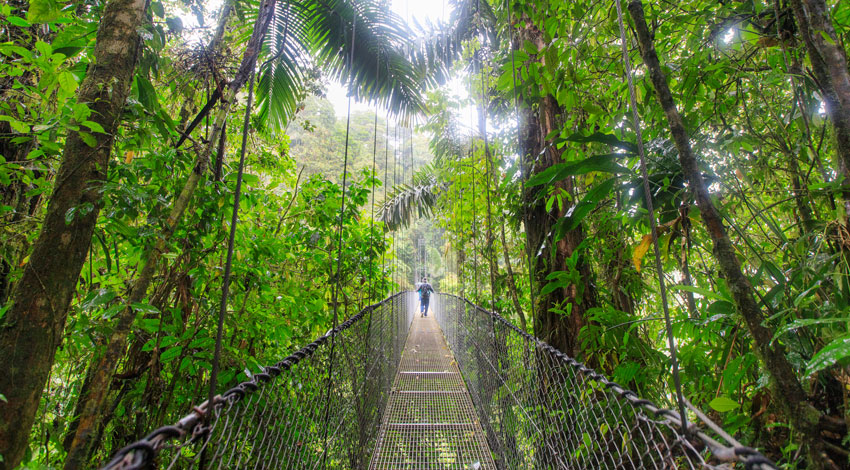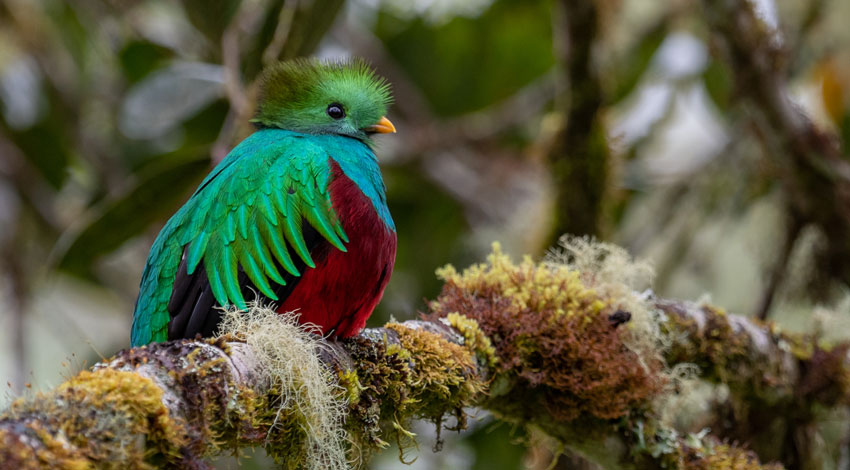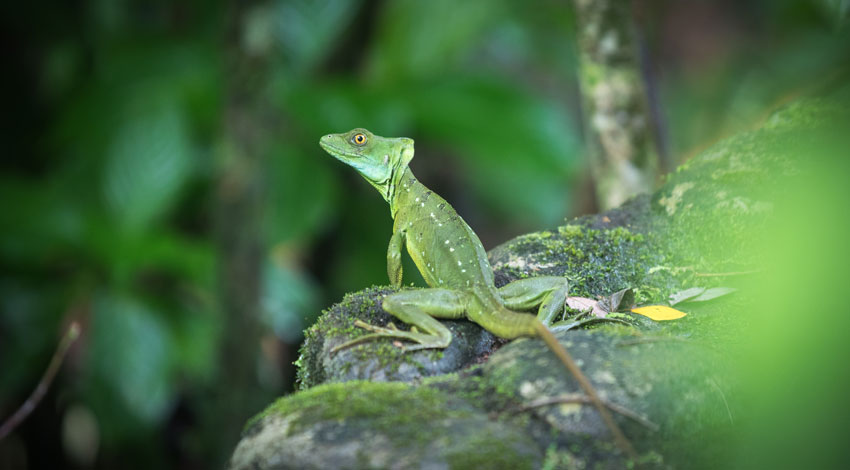Climate Activism: Costa Rica’s Quest to Help Save Our Planet
I’m Lizzie from Road Scholar, and I’ve learned that connecting with an important topic on a more personal level creates a passion not found by simply listening to the news. That’s why taking part in the program A Taste of Costa Rica not only provided me with an educational adventure, but it drove home a subject that I am now better able to relate to and feel more passionate about — our planet’s climate crisis.

Becoming immersed in the microclimates of tropical rainforests, high-elevation mountain farms and volcanic parks, spotting colorful endemic wildlife species, taking in the fragrance of unique flora and tasting fresh fruits straight from the Caribbean soil — these were all experiences that provided me with an in-the-moment learning environment.
Context is everything. So, providing our group with a lesson on global warming smack in the middle of a cloud forest really brought home how quickly the clock is ticking and the gravity of our planet’s crisis. Climate Activist Expert Sarah Stuckey opened our eyes to some stark realities, walking us through how precious the time is that we have left to make big changes. Here’s what we learned.
Costa Rica is taking a hard look at climate change.
Since the 1940s, Costa Rica has become increasingly aware of the necessity of protecting its forests and wildlife, and by the 1950s began to create national parks in areas surrounding its volcanoes. In the 1960s, a government institution was established to manage conservation areas.
You see, this country has had a front seat to witness several alarming signs of just what a small change in temperatures can do.
Take, for example, Monteverde — a mountainous region known for its cloud forests. It’s famous among birders as a place to likely spot the Resplendent Quetzal, an endangered species. These birds, who love high elevation and biologically rich forests, have a large population in Costa Rica.

Resplendent Quetzal
But before that avian species, there was another creature that held the title of most sought-after find. In 1964, the Golden Toad was discovered, also in the high-altitude Monteverde Cloud Forest Reserve. And for 25 years, people clamored to catch a glimpse of this rare frog. But by 1989, the species was extinct. Why? Because of a deadly fungus — brought about by changes in the climate attributed to global warming. One-tenth of a degree was all it took to completely annihilate the Golden Toad.
With higher temperatures and lower humidity, there may come a time when the clouds are not low enough in Monteverde to keep the forests misty. And more often, periods of dry weather could become punctuated by larger rain events that the ground can’t handle, which could become a threat to both flora and fauna.
With climate change, there could also be a threat to the abundance of hummingbirds. Already, some animals in the lowlands have been spotted moving up into the mountains for comfort to avoid the heat.
Climate change could impact crops in Costa Rica, including coffee plants, making it important to protect against fungus issues. When it comes to growing pineapples, chemicals transported by heavy downpours could become a threat, as climate changes make for irregular rainfall patterns and excessive heat.

That’s why Costa Rica is now leading by example in ways big and small.
The Monteverde Conservation League is doing its part to preserve and rehabilitate tropical ecosystems and their biodiversity, throwing their support behind land protection, environmental education, research, reforestation and recycling programs.
Even kids are being taught that they can make a difference. What started out in 1988 as a class project at a Swedish primary school to save the forests, has grown into a worldwide fundraising effort named the Children’s Eternal Rainforest. In just the first four years of this nonprofit, $2 million was raised. It’s run by Costa Rica’s Monteverde Conservation League and has taught schoolchildren worldwide that they have powerful voices once they’re armed with the knowledge of what can be done to help save our planet.
Those funds have been used for the purchase of the largest private land preserve in Costa Rica (56,000 acres) aimed at connecting one forest fragment to another in order to continue to create biological corridors.
Costa Rica’s goal is to align itself with global climate action, preparing for the climate crisis by working to become completely carbon neutral. Methods under consideration include a greater use of electric vehicles (which have a lower carbon footprint than gas vehicles), public planning for community accessibility and more sidewalks (to reduce the necessity of driving), community gardens (so that people can grow food for themselves) and barter stores (for trading clothes).
Other ideas under the spotlight include cutting out chemical fertilizers in favor of organic to improve the natural fungi (which would restore carbon back into the soil), longer grazing rotations for cattle and choosing thermal and hydroelectricity power sources. Costa Rica is thinking ahead — and hoping the rest of the world will, too.

We’re all in this together. So, what can we do?
Any little changes that you make do have an impact, so becoming more aware and asking yourself some questions is a good place to start. Where’s your food coming from? Are you buying local instead of supporting shipping? Have you considered consuming less? Are you able to change your methods of transportation? Can you create a food supply with your own garden? Even if it feels a little uncomfortable, changing our habits could go a long way toward helping our planet.
And if you think your contribution won’t make a difference, consider this small example of refilling your bottles. Every 100 bottles refilled equals about five pounds of CO2-equivalent avoided. If everyone did that, it sure would add up to significant change.
What happens tomorrow depends on what we do today. Here are some of the steps that Road Scholar is taking towards sustainability.
If you visit Costa Rica on one of our Road Scholar learning adventures, you, too, will have the opportunity to explore some of the incredible microclimates that are being protected. And along the way, you’ll experience firsthand how the people of this country are coming together to help sustain our planet and fight climate change.
